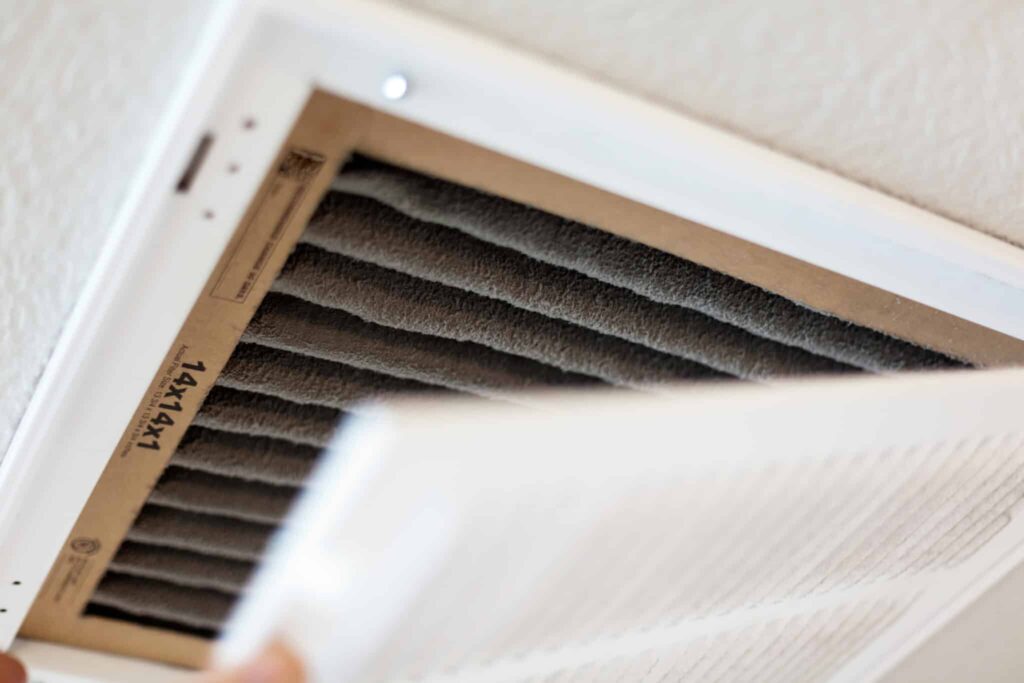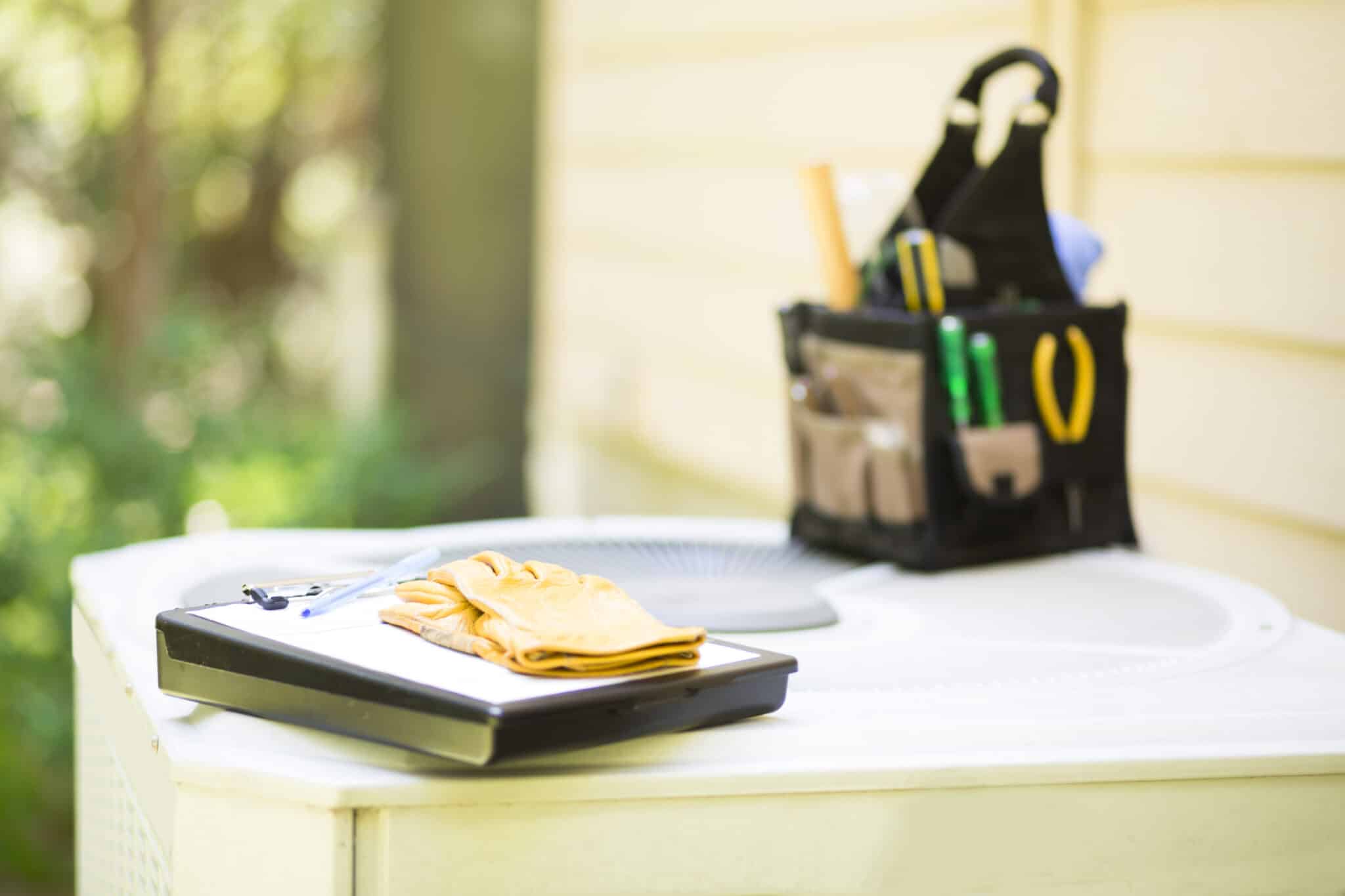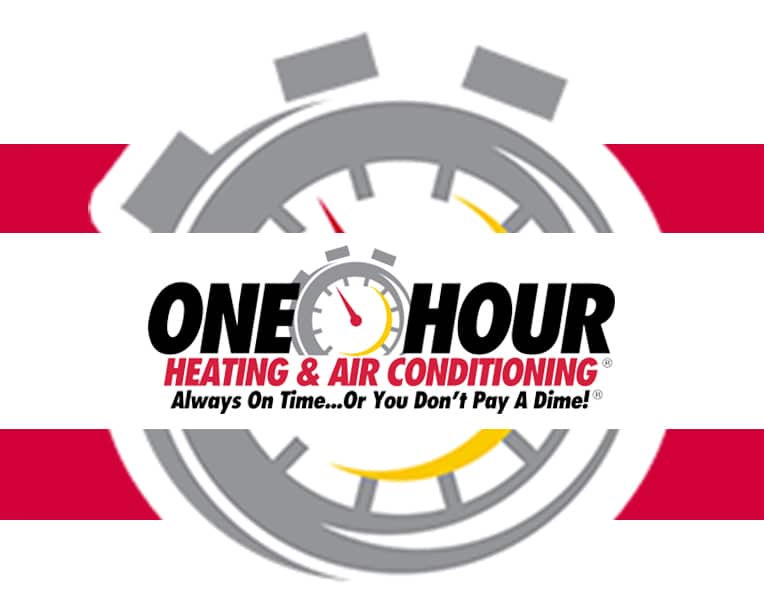HVAC Maintenance- Do you want your home to be the perfect oasis of comfort all year round? Well, maintaining your HVAC system is the key to making that happen!
Whether you live in San Diego, CA, La Mesa, CA, or Lakeside, CA, keeping your HVAC system in top shape ensures that your home stays cozy in winter and cool in summer. This guide will walk you through the essential HVAC maintenance tips every homeowner should know.
Why HVAC Maintenance is Important
Maintaining your HVAC system is crucial for several reasons. A well-maintained HVAC system runs efficiently, which saves energy and reduces utility bills. Additionally, regular maintenance extends the lifespan of your system, preventing costly breakdowns and repairs.
Most importantly, a properly maintained HVAC system improves indoor air quality, ensuring a healthier living environment for you and your family.
Understanding Your HVAC System
Before diving into the maintenance tips, it’s helpful to understand the basic components of your HVAC system. The HVAC system consists of three main parts: heating, ventilation, and air conditioning. Each of these components needs regular care to function efficiently.
The heating component includes the furnace or heat pump that provides warmth during cold months. Ensuring your heating system is functioning correctly is essential to avoid those chilly winter nights.
The ventilation part of your system ensures proper air circulation and filters the air, contributing significantly to indoor air quality.
Lastly, the air conditioning part cools your home during hot weather, making those scorching San Diego summers much more bearable.

Monthly HVAC Maintenance Tips
Check and Replace Air Filters
Checking and replacing air filters is one of the simplest yet most effective HVAC maintenance tasks. Air filters play a crucial role in maintaining indoor air quality. Over time, they can become clogged with dust and debris, reducing efficiency.
Check your air filters every month and replace them if they are dirty. This simple task can improve air quality and extend the life of your HVAC system.
Inspect the Thermostat
Another important monthly task is inspecting the thermostat. Make sure your thermostat is working correctly. If you have an older, non-programmable thermostat, consider upgrading to a programmable or smart thermostat.
These devices can help you save energy by automatically adjusting the temperature when you’re not at home. This not only saves you money but also ensures your home is always at the perfect temperature.
Clean the Outdoor Unit
Cleaning the outdoor unit of your HVAC system is also crucial. The outdoor unit can collect leaves, dirt, and debris, which can obstruct airflow.
Clean around the unit monthly to ensure it operates efficiently. Make sure to turn off the power before cleaning to avoid any accidents.
Seasonal HVAC Maintenance Tips
Schedule Professional Inspections
Scheduling professional inspections is a wise step to keep your HVAC system in top shape. It’s wise to have a professional HVAC technician inspect your system twice a year – in the spring before the cooling season and in the fall before the heating season.
They can identify and fix potential issues before they become major problems, ensuring your system runs smoothly when you need it the most.
Clean and Inspect Ductwork
Cleaning and inspecting ductwork is another important seasonal task. Ductwork can accumulate dust and allergens over time.
Have your ducts inspected and cleaned at least once a year. This improves airflow and helps maintain good indoor air quality, which is especially important for those with allergies or respiratory conditions.
Check Refrigerant Levels
Checking refrigerant levels is essential for the efficient operation of your air conditioning unit. Low refrigerant levels can cause your air conditioner to work harder, leading to higher energy bills and potential damage to the unit.
During the professional inspection, ensure the technician checks and replenishes the refrigerant levels if necessary.
Annual HVAC Maintenance Tips
Inspect and Clean the Coils
Inspecting and cleaning the coils of your HVAC system should be done annually to maintain efficient operation. Both evaporator and condenser coils need regular cleaning to prevent reduced efficiency and potential overheating of the system.
Using a soft brush to remove dust and debris can be effective, but hiring a professional ensures a thorough cleaning.
Test the System’s Safety Features
Your HVAC system is equipped with essential safety features, such as pressure switches and limit controls, designed to prevent accidents.
Testing these safety features annually is crucial to confirm they are functioning correctly. Regular testing ensures that the system operates safely and reliably, protecting both your home and its occupants.
Inspect the Flue System
For HVAC systems that burn fuel, inspecting the flue system is crucial to ensure it is properly connected and free of obstructions. A thorough inspection is vital to prevent dangerous carbon monoxide poisoning, which can result from blockages or leaks.
Ensuring the safe operation of your heating system through regular flue inspections is essential for maintaining a safe and healthy home environment.

Simple DIY HVAC Maintenance Tasks
Clear the Drain Lines
Your air conditioner has a drain line that can become clogged with algae and mold, leading to potential blockages.
Regularly cleaning the drain line using a mixture of bleach and water helps keep it clean and functioning properly. This simple maintenance task can prevent water damage and ensure your HVAC system runs efficiently.
Check for Leaks
Regularly inspecting your HVAC system for any signs of leaks, particularly around the air ducts and refrigerant lines, is crucial.
If you find any leaks, seal them with duct tape or an appropriate sealant to maintain efficient operation. Addressing leaks promptly helps in preserving the system’s efficiency and preventing energy loss.
Lubricate Moving Parts
Ensuring the smooth operation of your HVAC system involves lubricating the moving parts, such as the blower motor and fan.
Use a lubricant recommended by the manufacturer to reduce friction and enhance performance. Regular lubrication helps extend the lifespan of your HVAC components and keeps the system running smoothly.
Tips for Energy Efficiency
Install a Programmable Thermostat
Installing a programmable thermostat is an effective way to save energy through precise HVAC maintenance. By automatically adjusting the temperature based on your daily schedule, you can set it to lower the temperature when you are asleep or away from home.
This ensures optimal energy use without compromising comfort and significantly enhances your HVAC maintenance routine.
Seal Windows and Doors
Properly sealing your windows and doors is essential to prevent air leaks, which is a crucial aspect of HVAC maintenance. Sealing these areas helps maintain the desired temperature inside your home, enhancing the efficiency of your HVAC system.
This simple yet effective step not only reduces energy consumption but also lowers utility costs, making HVAC maintenance even more beneficial.
Use Ceiling Fans
Ceiling fans can help distribute air more evenly throughout your home, which complements your HVAC maintenance efforts. In the summer, run the fans counterclockwise to create a cooling breeze, reducing the need for your HVAC system to work as hard.
In the winter, switch the direction clockwise to circulate warm air, further supporting your HVAC maintenance by promoting even temperature distribution.
Extending the Lifespan of Your HVAC System
Keep Vents Open and Unobstructed
Make sure that all vents and registers in your home are open and unobstructed. This ensures proper airflow, allowing your HVAC system to work efficiently. By keeping vents clear, you reduce the strain on your system, which can extend its lifespan and improve overall comfort.
Replace Older Systems
If your HVAC system is over 10-15 years old, consider replacing it with a newer, more efficient model.
Modern systems use advanced technology to enhance energy efficiency, lowering your utility bills. Investing in a new HVAC system can provide better performance and reliability, giving you peace of mind.
Insulate Your Home
Proper insulation helps maintain a consistent temperature inside your home, reducing the workload on your HVAC system.
Insulate your attic, walls, and floors to improve energy efficiency and prevent heat loss. Effective insulation can lead to significant savings on heating and cooling costs while enhancing indoor comfort.
Common HVAC Problems and Solutions
Uneven Heating or Cooling
If some rooms in your home are warmer or cooler than others, it could be due to uneven airflow. This imbalance may result from blockages in the ductwork or vents that restrict the flow of air.
To resolve this issue, check for and remove any obstructions, and ensure that your vents are properly balanced to promote an even distribution of air.
Strange Noises
Unusual noises coming from your HVAC system can indicate a problem that needs immediate attention.
Squealing sounds might suggest a loose belt while grinding noises could mean a motor requires lubrication. It’s important to have a professional inspect your system to diagnose and address these issues before they lead to more significant damage.
Poor Air Quality
Poor indoor air quality can result from a dirty HVAC system, causing dust, pollen, and other pollutants to circulate throughout your home.
Regularly replacing air filters and cleaning ducts can help maintain good air quality.
Additionally, installing air purifiers or humidifiers can further enhance the air quality, making your home healthier and more comfortable.
Leaking Refrigerant
Refrigerant leaks in your HVAC system can lead to reduced cooling efficiency and increased energy costs.
Signs of a refrigerant leak include hissing sounds and reduced cooling performance. It’s essential to have a professional repair the leak and recharge the system to restore its efficiency and effectiveness.
Thermostat Issues
A malfunctioning thermostat can cause your HVAC system to run inefficiently or not at all. If your system is not responding to thermostat adjustments, check the batteries and settings.
If the problem persists, it may be necessary to replace the thermostat or have it professionally repaired to ensure accurate temperature control.
Health and Safety Tips
Change Filters Regularly
As mentioned earlier, changing air filters regularly is crucial for maintaining good indoor air quality. This simple yet effective practice helps to reduce the accumulation of dust, pollen, and other airborne particles that can compromise air quality.
Regular filter changes are particularly important for households with pets, allergies, or respiratory conditions, as they help to minimize allergens and improve overall health.
Install Carbon Monoxide Detectors
For homes with fuel-burning HVAC systems, installing carbon monoxide detectors is essential to ensure safety. These detectors should be placed near sleeping areas and on each floor of your home to provide comprehensive coverage.
By alerting you to any dangerous leaks, carbon monoxide detectors can help prevent serious health risks associated with carbon monoxide poisoning.
Maintain Humidity Levels
Proper humidity levels are important for both comfort and health, helping to create a balanced indoor environment. During winter, using a humidifier can add necessary moisture to the air, preventing dry skin and respiratory issues.
In contrast, a dehumidifier can be beneficial during the summer months to reduce excess humidity, which can help prevent mold growth and improve comfort.
Seasonal HVAC Maintenance Checklist
Spring and Summer
- Inspect and Clean Air Filters: Ensure your air filters are clean for optimal airflow.
- Check Thermostat Settings: Adjust settings for the cooling season.
- Clean Outdoor Unit: Remove debris from around the unit.
- Inspect Ductwork: Look for leaks and clean if necessary.
- Check Refrigerant Levels: Ensure the refrigerant is at the correct level.
Fall and Winter
- Inspect and Clean Air Filters: Prepare for the heating season with clean filters.
- Check Thermostat Settings: Adjust for the heating season.
- Inspect the Furnace: Have a professional check the furnace.
- Inspect the Flue System: Ensure it’s free of obstructions.
- Test Safety Features: Make sure safety controls are working properly.
DIY vs. Professional Maintenance
While there are many tasks you can do yourself, some maintenance should be left to professionals. Regular professional inspections help catch potential issues early and ensure your system is running efficiently. Here are some reasons why professional maintenance is crucial:
- Expertise and Experience: Professionals have the training and experience to identify and fix problems that may not be obvious to homeowners.
- Comprehensive Inspections: They perform thorough inspections, covering all components of the HVAC system, ensuring nothing is overlooked.
- Safety: Handling refrigerants and testing safety features can be dangerous without proper knowledge and equipment. Professionals ensure these tasks are done safely.
- Efficiency: A professional can optimize your system for peak performance, which can save you money on energy bills.
- Warranty Compliance: Regular professional maintenance may be required to keep your HVAC system’s warranty valid.
For more complex tasks like inspecting the furnace, testing safety features, or handling refrigerants, it’s best to call in a professional. Their expertise ensures that your HVAC system runs smoothly and safely.
Keeping your HVAC system well-maintained ensures a comfortable, energy-efficient home. If you need professional help, don’t hesitate to reach out to experts.
Contact Us: Your HVAC Maintenance Experts!
For reliable HVAC maintenance in San Diego, CA, La Mesa, CA, and Lakeside, CA, trust One Hour Heating & Air Conditioning San Diego. Our team of experienced professionals is dedicated to keeping your HVAC system running efficiently and effectively.
Whether it’s routine maintenance, inspections, or addressing complex issues, we have the expertise to handle it all. Don’t wait for problems to arise; ensure your system is in top shape year-round.
Call us today at 619-639-4017 to schedule your maintenance service and experience the difference with One Hour Heating & Air Conditioning San Diego!
FAQs
Why is HVAC maintenance important for homeowners in San Diego?
Regular HVAC maintenance ensures that your system runs efficiently, saving energy and reducing utility bills. It also extends the lifespan of your HVAC system, preventing costly breakdowns and repairs. Most importantly, regular HVAC maintenance improves indoor air quality, promoting a healthier living environment.
What are the basic components of an HVAC system that homeowners should be aware of?
An HVAC system consists of three main parts: heating, ventilation, and air conditioning. The heating component includes the furnace or heat pump that provides warmth during cold months. The ventilation part ensures proper air circulation and filters the air, contributing to indoor air quality.
What are some simple monthly HVAC maintenance tasks homeowners can do themselves?
Homeowners can check and replace air filters monthly to ensure optimal airflow and indoor air quality. Inspecting the thermostat for proper functionality and considering an upgrade to a programmable model can save energy. Additionally, cleaning the outdoor unit to remove debris is a simple yet effective HVAC maintenance task.
How often should professional HVAC inspections be scheduled?
It is recommended to have a professional HVAC technician inspect your system twice a year – in the spring before the cooling season and in the fall before the heating season. These inspections help identify and fix potential issues before they become major problems, ensuring your system runs smoothly.
What are some tips for extending the lifespan of an HVAC system?
Keeping vents open and unobstructed ensures proper airflow and reduces strain on the system. Replacing older HVAC systems with newer, more efficient models can enhance performance and lower utility bills. Properly insulating your home helps maintain a consistent temperature, reducing the workload on your HVAC system.



















